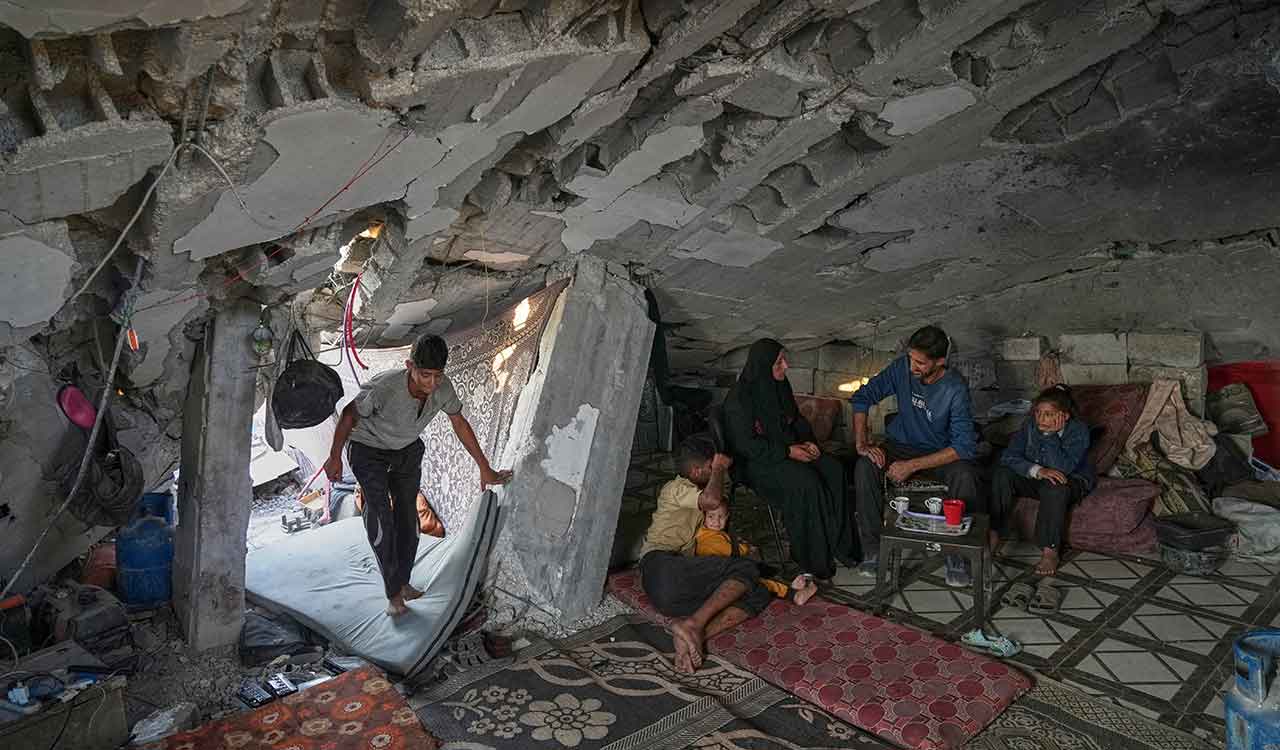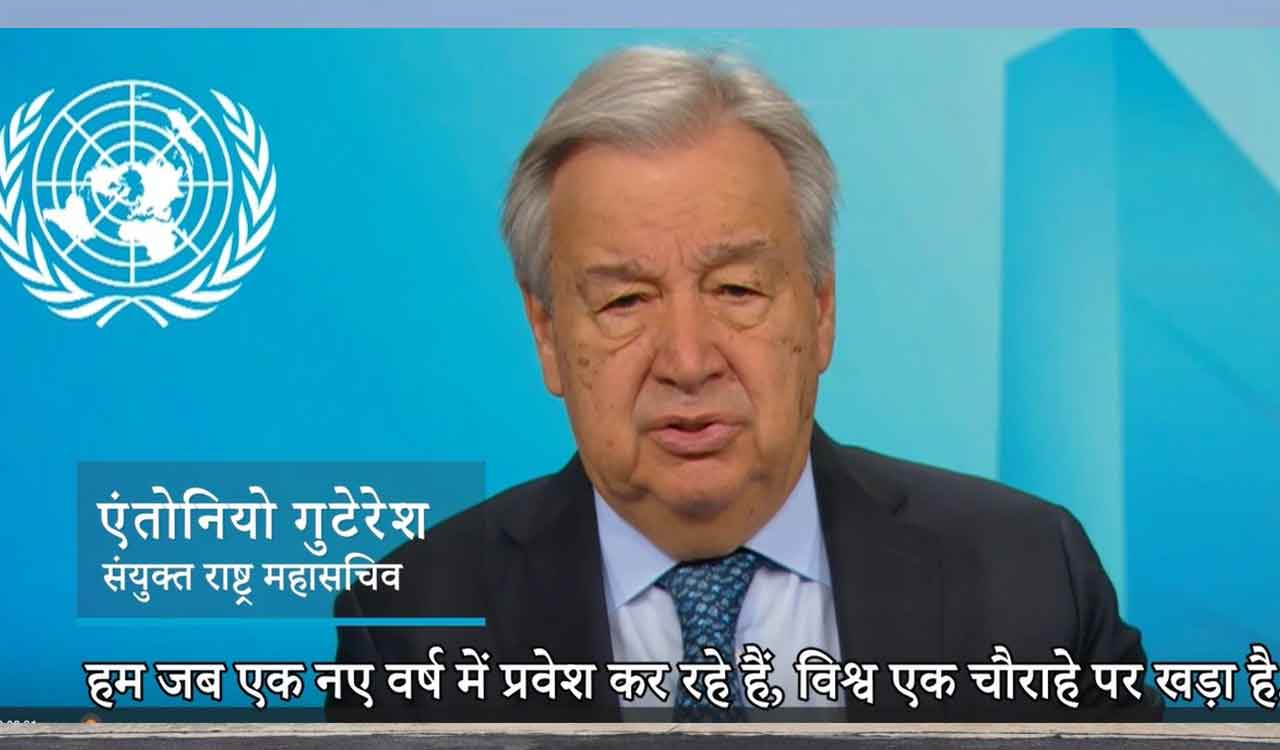Opinion: Building common from local
Localisation makes it possible to align plans and actions at the local level with the 2030 Agenda

By Inigo Arbiol Oñate, Ander Caballero
The 2030 Agenda was approved unanimously by the 193 United Nations Member States meeting in the General Assembly in September 2015. This strategic document aims to identify, understand and quantify the great challenges that we face as humanity.
Also Read
From this, both public and private actors can draw up strategies to build a fairer and more inclusive world in the medium and long term. At the same time, we must be able to carry out actions that also have an impact in the short term and weave alliances and synergies in favour of the SDGs.
Unfortunately, at the halfway point in which the international community agreed to implement the objectives of the 2030 Agenda, the world is now experiencing a confluence of old and new challenges .
To confront them, the powers concentrate their foreign policy fighting each other, while the social and environmental derivatives of the conflicts clearly show us the dysfunctions of this foreign policy model.
Therefore, today more than ever it is necessary to advocate the need to incorporate a new key in international relations. Overcoming international relations dominated by states, we must immediately and massively incorporate sub-state governments.
These governments are key public agents for the design and execution of strategies and policies in favour of a new political and economic model for sustainable global growth.
One of the fundamental elements that allow us to reach this statement is the fact that since its approval, the 2030 Agenda has provided us with a framework that works and allows us to evaluate, measure and report under the same criteria, with a common language and from all levels of public administration.
Local Political Communities
Seven years later, these measurements show us a unique capacity of local political communities to transform the formulation and execution of policies in terms of sustainable development, on issues such as citizen participation, fiscal policy, equality, urban planning or the comprehensive environmental management.
This process, which is internationally called localisation, makes it possible to align plans and actions at the local level with the 2030 Agenda.
On the other hand, it has an enormous capacity to transform the vision from which each of these territories interprets itself as an actor of local and global transformation.
Competitive Advantage
There are several reasons why localisation is essential and represents a great competitive advantage.
In the first place, the location makes it possible to incorporate local leaders who are close to citizens as agents of sustainable development.
Particularly outside of large cities, we are talking about people known to the public, with shared personal, family and political references. They are individuals who know and participate in the same problems and challenges and the responses given to them.
Secondly, this closeness to the citizenry allows quick and direct impacts on specific needs. This is something that commitments and actions at the national level, more strategic than tactical, often cannot achieve. These impacts result in greater citizen involvement with the sustainable development model, going from words to deeds.
Needs of Each Territory
Thirdly, localisation makes it possible to adapt an international commitment that identifies objectives and goals with the specific needs of each territory, de-escalating a universal language in a local agenda, but sharing a coherent global mission with multilateral forums.
Great national policies are like a large ship capable of carrying large quantities but slow to manoeuver when necessary.
However, the location resembles a small fishing boat. Given its specific nature and adapted to the territory, it is agile and easily corrects its course, adapting to the reality of the sea.
Fourthly, the implementation of international commitments on sustainable development is impossible if the different governance models that exist are not taken into account. Particularly important is the fact that the powers are shared, and even exclusive, of local entities.
Therefore, localisation is an opportunity to take advantage of sub-state entities and promote the coherence and effectiveness of multi-level and multi-stakeholder governance.
In fifth place is the capacity of the local to incorporate the issue of sustainable and inclusive development in the public debate. The difficulty at the national level to reach citizens and transmit to all social, business or political actors the relevance of sustainable development is much greater.
This is demonstrated by the fact that today we continue to explain what the SDGs or the 2030 Agenda are, despite being commitments acquired by our states over 7 years ago.
Participatory Processes
Sixthly, and as a consequence of this public debate, the location allows us to measure the indicators with greater precision and transfer them to participatory processes of accountability.
The greater the closeness and impact of the policies, the greater the need for accountability, but also greater identification, legitimacy and affinity towards them.
The study of location allows us to affirm that the aforementioned advantages of location are added to the value of being able to internationalise models of sustainable and inclusive growth that overcome current geopolitical tensions.
Cooperation between territories at the sub-state level already serves to weave alliances between equals, creating networks that overcome the limitations of inter-state tensions or the growing exclusive populisms and give us the capacity to achieve common and fundamental objectives.

(Inigo A Oñate is Professor of International Relations, University of Deusto, Spain. Ander Caballero is Visiting Scholar, Harvard University)
Related News
-
Businessman shot dead near cinema hall in Dehradun, third murder in 11 days
17 mins ago -
Man beaten to death for objecting to urinate near home in Prayagraj
27 mins ago -
PM Modi shifts to Seva Teerth office from South Block in New Delhi
33 mins ago -
Railways deactivate 3.03 crore fake user IDs to curb ticket fraud: Vaishnaw
53 mins ago -
Jagapathi Babu unveiled as Prabhakar in Abhishek Nama’s ‘Nagabandham’
54 mins ago -
Woman leaves home with toddler after dispute over smartphone
1 hour ago -
Cafe Niloufer opens Niloufer Chath rooftop restaurant in Banjara Hills
1 hour ago -
TGSRTC pushes green transition, targets 2,800 e-buses in by 2027
1 hour ago




